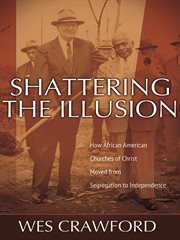Nonfiction
eBook
Details
PUBLISHED
DESCRIPTION
1 online resource
ISBN/ISSN
LANGUAGE
NOTES
A groundbreaking book telling the story of how a pivotal 1968 event shattered the illusion of racial unity in Churches of Christ. Churches of Christ are a Southern American denomination, and throughout their history they have behaved much like their regional peers. From the late nineteenth century to the dawn of the Civil Rights Movement, African American and white members of Churches of Christ perpetuated an illusion of racial unity by playing their long-established roles in southern society. For decades this illusion was protected through denominational journals, lectureships, and schools. Just as the Civil Rights Movement was forcing whites and African Americans to deal with generations of racism, however, a pivotal event in Nashville, Tennessee, shattered the illusion of racial unity in Churches of Christ. The events surrounding the closing of the Nashville Christian Institute revealed the secret that had long remained hidden, namely that within Churches of Christ there existed two racially defined factions with their own customs, identities, and views concerning race relations. The public spectacle that ensued shattered the illusion of unity between African Americans and whites. And since that pivotal 1968 civil rights case entered the courts, the distance between these two racial factions has grown. Drawing upon original research in the primary sources, this important book tells this story and argues this case with compelling grace and insight, concluding that if these two racial factions are ever to realize meaningful unity, they must find common ground, not only in questions of race, but also in issues of theology
Mode of access: World Wide Web







